2022 Celebration of Faculty Excellence Biographies
Alexander Quarles Holladay Medal for Excellence
Audrey Jaeger
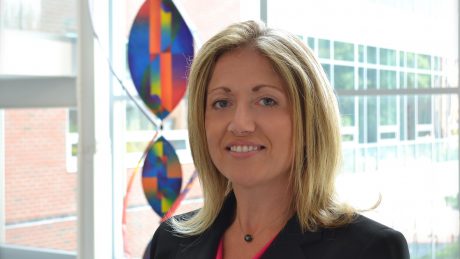
Dr. Jaeger, the William Dallas Herring Professor in the Department of Educational Leadership, Policy, and Human Development, earned her Ph.D. from New York University. She received the Alexander Quarles Holladay Medal for Excellence in recognition of her commitment to comprehensive educational excellence. Jaeger is the founding director of the Belk Center for Community College Leadership and Research. The Belk Center’s mission to advance the social and economic mobility of North Carolina’s community college students fits squarely within NC State’s goal to serve the citizens of our state as a land-grant university. Her research focuses on examining relationships and experiences among faculty and students in colleges, and illuminates issues of transition, access, equity, climate and agency. Her work advances equitable student success and institutional effectiveness by bringing actionable data to leaders. Jaeger was inducted into the Academy of Community Engagement Scholarship, and received the Association for the Study of Higher Education Mentor Award, the National Association of Student Personnel Administrators Robert H. Shaffer Award for Academic Excellence as a graduate faculty member, the Council of Southern Graduate Schools Outstanding Mentor Award, and the Women in Higher Education Achievement Award from ihe National Panhellenic Conference. She was previously inducted into the Academy of Outstanding Teachers, the Academy of Outstanding Faculty Engaged in Extension and the Research Leadership Academy at NC State.
James Kiwanuka-Tondo
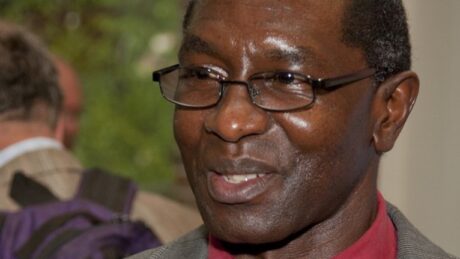
Dr. Kiwanuka-Tondo, a professor in the Department of Communication, earned his Ph.D. in communication sciences from the University of Connecticut. He was honored with the Alexander Quarles Holladay Medal for Excellence for his collaboration with Dr. Fredrick Semazzi on research funded by the East Africa Community with a goal to strengthen meteorological services on Lake Victoria in order to both enhance safety of navigation as well as efficient exploitation of natural resources using community-engaged scholarship, which enabled them to incorporate indigenous knowledge. His research focuses on health communication and communication of climate extremes. Kiwanuka-Tondo is a member of the Academy of Excellence in Global Engagement for outstanding achievements in international education and research; received the Office of Global Engagement’s Jackson Rigney International Service Award in Recognition of Outstanding Research and Scholarship through International Collaboration, as well as the Outstanding Global Engagement Award. He received the inaugural Lawrence M. Clark Faculty Excellence Award for Scholarship and Engagement, received a Fulbright Scholarship and was named a Carnegie African Diaspora Fellow. He has also been named a Community-Engaged Faculty Fellow at NC State, and received the College of Humanities and Social Sciences’ Alumni Association Distinguished Graduate Professor Award.
James Lester
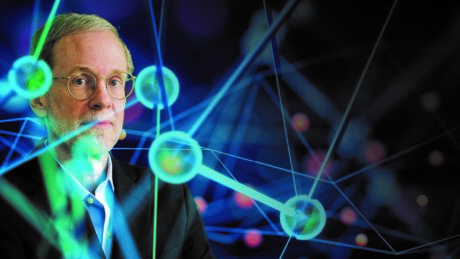
Dr. Lester, a distinguished university professor in the Department of Computer Science, earned his Ph.D. in computer science from the University of Texas at Austin. He received the Alexander Quarles Holladay Medal for Excellence for his service as founding director of the NC State Center for Educational Informatics, an internationally recognized research center for artificial intelligence-based learning technologies. He is the director of the National Science Foundation (NSF) AI Institute for Engaged Learning. Lester’s research centers on artificial intelligence technologies for education. His work on AI-driven learning technologies ranges from narrative-centered learning environments and virtual agents for learning to multimodal learning analytics and sketch-based learning environments. Lester is a Fellow of the Association for the Advancement of Artificial Intelligence. His foundational work on pedagogical agents has been recognized with the Influential Paper Award by the International Federation for Autonomous Agents and Multiagent Systems. He is the recipient of a NSF Early Career Development (CAREER) Award. He has been recognized with the NC State Alumni Association Outstanding Research Award and has been inducted into the Research Leadership Academy. He is the recipient of an NC State Outstanding Teacher Award and has been elected to the Academy of Outstanding Teachers.
Veena Misra
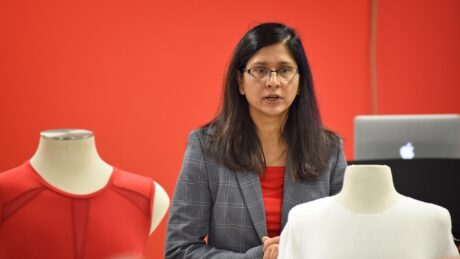
Dr. Misra, a distinguished professor in the Department of Computer and Electrical Engineering, received her Ph.D. in electrical engineering from NC State. Misra was awarded the Alexander Quarles Holladay Medal for Excellence for her significant accomplishments as a researcher, educator, innovator and leader with impactful contributions to the university. Under her leadership of the National Science Foundation (NSF) ASSIST center, she has enabled disruptive engineering advances that help continuous health monitoring while building a culture of innovation and collaboration that drives student success. Misra’s research has included advanced silicon transistor technology and wide band gap devices. She has worked with NC State chemists to demonstrate a unique silicon transistor integrated with redox-active molecules. She is also driving innovation in E-nose arrays for chemical sensing. Misra has over 215 publications and has an H-index of 42. She was selected as the IEEE Sensors Council Distinguished Lecturer in 2018. In 2016, she received the R.J. Reynolds Tobacco Company Award for Excellence in Teaching, Research and Extension. She has received the Alcoa Foundation Distinguished Engineering Research Award, the Alcoa Foundation Research Achievement Award and the NC State Alumni Outstanding Research Award. In 2001, Misra received the NSF Presidential Early CAREER Award. The funding amount where she has either been PI or critical co-PI is over $59 Million.
Richard Spontak
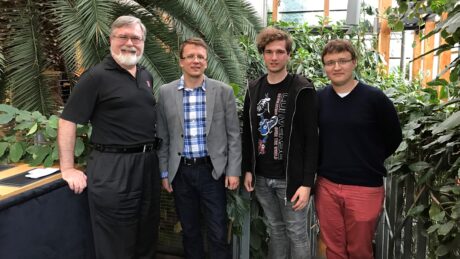
Dr. Spontak, a distinguished professor in the Department of Chemical and Biomolecular Engineering and a professor in the Department of Materials Science and Engineering, earned his Ph.D. in chemical engineering from the University of California, Berkeley. He received the Alexander Quarles Holladay Medal for Excellence for outstanding and impactful research in a broad range of soft materials, yielding broad-spectrum antimicrobial polymers capable of inactivating antibiotic-resistant bacteria, viruses (e.g., SARS-CoV-2) and black mold to >99.9999% in five minutes or less, and polymer membranes that are CO2 ultra permeable and ultra-selective for inexpensive, scalable and efficient carbon capture. Spontak’s research has been reported in more than 300 peer-reviewed publications and focuses on soft materials (e.g., nanostructured, functional and responsive elastomers) to address contemporary technological and societal needs, polymer phase behavior and mechanics, and advanced material characterization methods. He received the 2022 American Chemical Society (ACS) Roy Tess Award in Coatings, the 2022 Society of Polymer Science (Japan) International Award, the 2015 Society of Plastics Engineers International Award, the 2011 Institute of Materials, Minerals and Mining Colwyn Medal, the 2008 ACS Chemistry of Thermoplastic Elastomers Award, the 2007 German Electron Microscopy Society Ernst Ruska Prize and the 2006 ACS Cooperative Research Award in Polymer Science. At NC State, he received the 2008 UNC Board of Governors’ Award for Excellence in Teaching and the 2005 Alumni Association Outstanding Research Award.
UNC Board of Governors Award for Excellence in Teaching
Laura Clarke
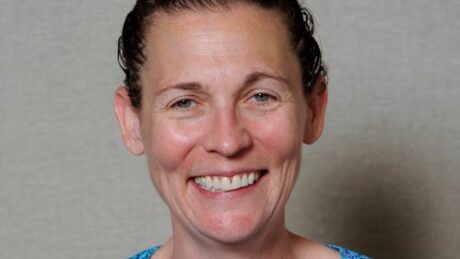
Dr. Clarke, a professor in the Department of Physics, earned her Ph.D. in physics from the University of Oregon. She received the UNC Board of Governors Award for Excellence in Teaching for her extensive teaching of introductory-level and major-level physics courses and bringing experiential learning opportunities to the physics major curriculum. These opportunities have better prepared students to enter the workforce, teaching them time-management, teamwork and the application of technical knowledge to various problems. Clarke was named an NC State Alumni Distinguished Undergraduate Professor (2018), received the NC State Outstanding Teacher Award (2015), received the NC State College of Physical and Mathematical Sciences LeRoy and Elva Martin Award for Teaching Excellence (2010) and the Graduate Teaching Fellow Award from the University of Oregon (1994).
Governor James E. Holshouser, Jr. Award for Excellence in Public Service
Jane Hoppin
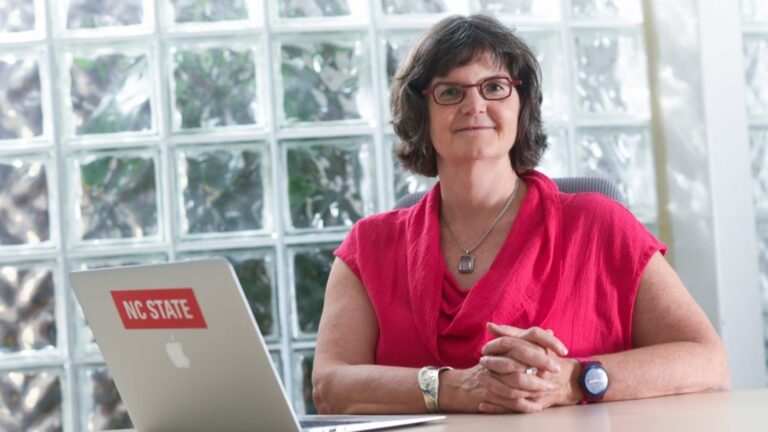
Dr. Hoppin, a professor in the Department of Biological Sciences, received her Sc.D. in environmental and health epidemiology from the Harvard School of Public Health. She was named the recipient of the 2021 Governor James E. Holshouser, Jr. Award for Excellence in Public Service for her work on the GenX Exposure Study. In 2017, Dr. Hoppin created the GenX Exposure Study to address community concerns about GenX contamination of drinking water. She secured rapid response funding from the National Institutes of Health and contributed substantially to the successful National Institute of Environmental Health Sciences funding of NC State’s Superfund Center, which is dedicated to understanding PFAS toxicity and improving its remediation. Hoppin is an NC State University Faculty Scholar, was hired through the Chancellor’s Faculty Excellence Program and is interim director of the Center for Human Health and the Environment. She is a fellow in the Collegium Ramazzini.
Provost’s Award for Excellence in Teaching
Lisa Bullard
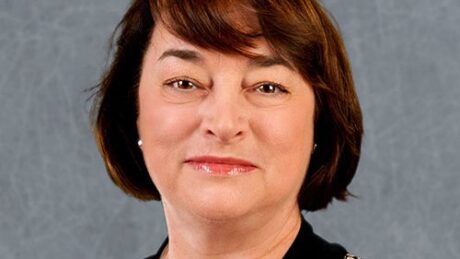
Dr. Bullard, a teaching professor in the Department of Chemical and Biomolecular Engineering, received her Ph.D. in chemical engineering from Carnegie Mellon University. She was honored with the Provost’s Award for Excellence in Teaching for being a nationally-recognized teacher and advisor in engineering education. Along with Richard Felder and Ron Rousseau, she is a co-author of Elementary Principles of Chemical Processes (4th edition), used by 80% of chemical engineering departments worldwide. Bullard’s research interests lie in the area of educational scholarship, including teaching and advising effectiveness, academic integrity, chemical engineering instruction and organizational culture. A faculty member at NC State since 2000, Bullard is an NC State Distinguished Alumni Undergraduate Professor and has won the NC State Faculty Advising Award. She is a Fellow of both the American Institute of Chemical Engineers and the American Society for Engineering Education. She is an associate editor of Chemical Engineering Education.
Alfred P. Sloan Research Fellowship
Lilian Hsiao
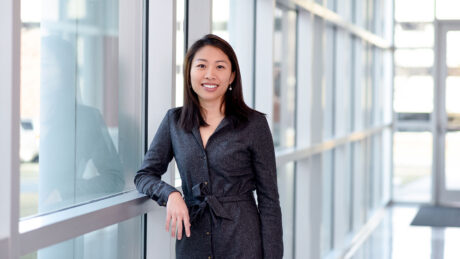
Dr. Hsiao, an assistant professor in the Department of Chemical and Biomolecular Engineering, earned her Ph.D. in chemical engineering from the University of Michigan. She received an Alfred P. Sloan Research Fellowship in Chemistry to advance the understanding of interfacial phenomena responsible for haptic friction in soft materials. Hsiao was honored with the American Chemical Society Unilever Award for Outstanding Young Investigator (2021), a National Science Foundation Early Career Development (CAREER) Award (2021) and the American Association for the Advancement of Science Marion Milligan Mason Award (2019).
American Association for the Advancement of Science Fellow
Morton Barlaz
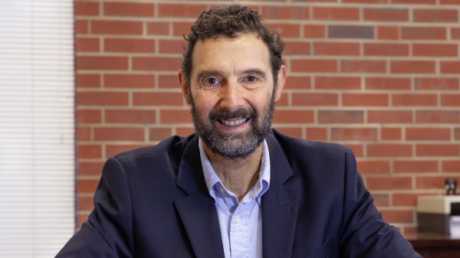
Dr. Barlaz, a department head and Distinguished University Professor in the Department of Civil, Construction, and Environmental Engineering, earned his Ph.D. in civil and environmental engineering from the University of Wisconsin. He was selected as an American Association for the Advancement of Science Fellow for his distinguished contributions to elucidate chemical and biological processes in landfills and the development of life-cycle models for assessment of solid waste management alternatives. His research focuses on solid waste engineering and management. Previously, Barlaz received the Perry L. McCarty Association of Environmental Engineering and Science Professors Founders’ Award (2020); the Air and Waste Management Association’s Richard I. Stessel Waste Management Award (2018), the Frederick George Pohland Medal, Association of Environmental Engineering and Science Professors Award (2015), was named a Kappe Lecturer by the American Academy of Environmental Engineers (2010), received the Association of Environmental Engineering and Science Professor’s Distinguished Service Award (2003, 2009, 2021) and was named an international lecturer by the Waste Management Association of Australia (2008).
Marc Cubeta

Dr. Cubeta, a professor in the Department of Entomology and Plant Pathology, received his Ph.D. in plant pathology from NC State. He was named an American Association for the Advancement of Science Fellow for his distinguished contributions at the intersection of fundamental and translational mycology and plant pathology research for improving plant and animal health; dedication to teaching, mentoring and educational outreach to middle and high school biology and environmental science teachers and the public; and administrative leadership and service to the scientific societies. Cubeta’s research focuses on ecology, microbial interactions, and population biology of beneficial and disease-causing fungi associated with cultivated and native species of plants and horses to address fundamental and translational research questions related to host adaptation, genome organization and heterogeneity. He is president, treasurer and executive council member of the Mycological Society of America; and a recipient of the American Phytopathological Society Outstanding Teaching Award; an NC State College of Agriculture and Life Sciences Outstanding Alumnus Award; a Fulbright Scholar Award (Uppsala, Sweden); and an NC State Outstanding Teacher Award. He is associate director of the Center for Integrated Fungal Research; a Mycological Society of America Fellow; director of the Larry F. Grand Mycological Herbarium; a member of the White House Office of Science and Technology Policy Microbiome Focus Group and Project Kaleidoscope; and an Association of American Colleges and Universities STEM Summer Leadership Institute mentor.
Karen Daniels
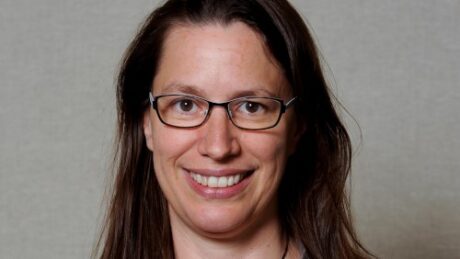
Dr. Daniels, a distinguished professor in the Department of Physics, earned her Ph.D. in physics from Cornell University. She was named an American Association for the Advancement of Science Fellow for distinguished contributions to the field of nonlinear and soft-matter physics, particularly for experimental investigation of granular matter. Her research focuses on experimental soft condensed matter physics and nonlinear dynamics of complex systems. Daniels is a recipient of the National Science Foundation Faculty Early Career Development (CAREER) Award (2007), an Alexander von Humboldt Fellowship (2011); and the LeRoy and Elva Martin Award for Teaching Excellence (2013). She is an NC State University Faculty Scholar (2013), won the NC State Equity for Women Award (2015), was named Outstanding Referee of Physical Review Letters (2017) and was named a Fellow of the American Physical Society (2018).
Jason Delborne

Dr. Delborne, a professor in the Department of Forestry and Environmental Resources and member of the Genetic Engineering and Society Center, earned his Ph.D. in environmental science, policy and management from the University of California, Berkeley. He was named an American Association for the Advancement of Science Fellow for exceptional contributions to the understanding and practice of public engagement for the governance of emerging environmental technologies. His research focuses on Science, Technology and Society (STS), with a specialty in public and stakeholder engagement in the governance of emerging environmental biotechnologies. Delborne is director of NC State’s STS Program; an NC State University Faculty Scholar; a member of the Chancellor’s Faculty Excellence Program Genetic Engineering and Society cluster; has served on two expert committees for the National Academies of Sciences, Engineering and Medicine (gene drives, forest biotechnology); was an Outstanding Global Engagement Award Finalist; and won the David Edge Prize awarded by the Society for Social Studies of Science.
Candace Haigler
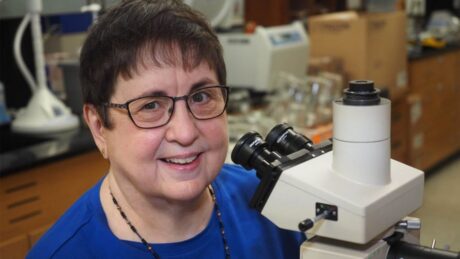
Dr. Haigler, a professor in the Department of Crop and Soil Sciences and the Department of Plant and Microbial Biology, earned her Ph.D. in botany from the University of North Carolina at Chapel Hill. She was named an American Association for the Advancement of Science Fellow for her distinguished research contributions to the fields of cellulose and cotton fiber biology and for broad service to the profession. Haigler studies the cellular, genetic, biochemical and biophysical controls of cotton fiber development and cellulose synthesis in plants and bacteria. This research is applicable to the production of next-generation, value-added, biomaterials and biomass crops. She received a Women in Cotton Biotechnology and Genetics Award (2020); was one of eight collaborators receiving a Department of Energy Frontier Research Centers Ten at Ten Award for an outstanding scientific idea (2019); was named Outstanding Research Scientist at Texas Tech University (1996); received the Honors Program Director’s Award of Merit to an Outstanding Faculty Member from Texas Tech (1994); was named a NATO Postdoctoral Fellow at the University of Cambridge (1987); was inducted as a full member of Sigma Xi (1980); and was inducted into three academic/service honor societies: Phi Beta Kappa, Omicron Delta Kappa and Mortar Board (1977).
Ayman Hawari
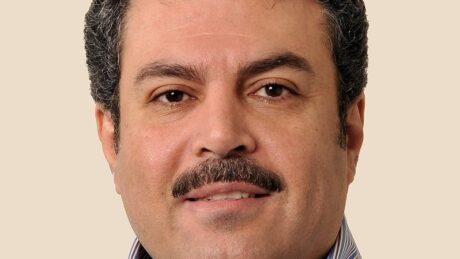
Dr. Hawari, a distinguished professor in the Department of Nuclear Engineering, earned his Ph.D. in nuclear engineering from the University of Michigan. He was named an American Association for the Advancement of Science Fellow for distinguished contributions to the field of nuclear engineering, particularly for the development of research reactor experimental facilities and fundamental contributions to the understanding of thermal neutron scattering. Hawari’s research interests include neutron physics, thermal neutron scattering data, nuclear radiation instrumentation, and advanced and research nuclear reactors. He is a Fellow of the American Nuclear Society; received the Alcoa Foundation Engineering Research Achievement Award; and is chair of the National Organization of Test, Research and Training Reactors, the Nuclear Energy Agency subcommittee on thermal neutron scattering data, and the Cross Section Evaluation Working Group subcommittee of thermal scattering law data.
Shuijin Hu
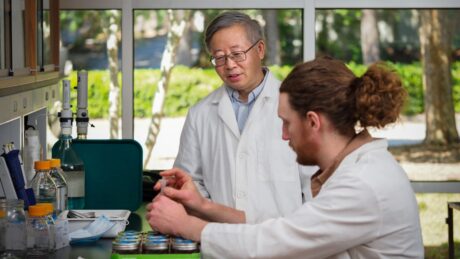
Dr. Hu, a professor in the Department of Entomology and Plant Pathology, earned his Ph.D. in ecology from the University of Georgia. He was named an American Association for the Advancement of Science Fellow for distinguished contributions to the field of microbial ecology, particularly elucidating multiple mechanisms by which microbial-plant interactions influence plant productivity and response to climate change. Hu’s research focuses on plant-microbial interactive mediation of ecosystem responses to climate change. He is a fellow of the Ecological Society of America (2021).
Mary Watzin
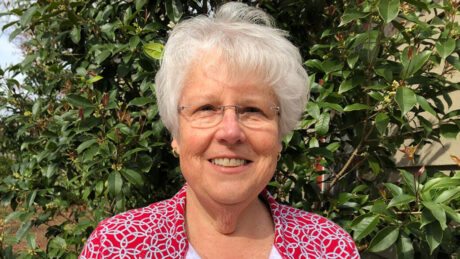
Dr. Watzin, a professor emerita in the Department of Forestry and Environmental Resources and director of the Coastal Resilience and Sustainability Initiative, earned her Ph.D. in marine sciences from the University of North Carolina at Chapel Hill. She was named an American Association for the Advancement of Science Fellow for distinguished contributions to the fields of marine and watershed ecology, interdisciplinary team science, and bringing science into public and policy discourse; and for her leadership in higher education. Watzin specializes in aquatic ecology and watershed management, with a wide-ranging history of research focused on understanding how human activities influence ecosystem health and how adaptive management can be used to improve environmental outcomes. She has received numerous awards and other recognitions for her teaching, research and engagement, including the Kroepsch-Maurice award for teaching excellence at the University of Vermont, the Teddy Roosevelt Conservation award, and the Ibaraki Kasumigaura Prize recognizing her work with colleagues in Macedonia and Albania on transboundary water management.
Department of Energy Early Career Research Award
Rubén Rellán-Álvarez
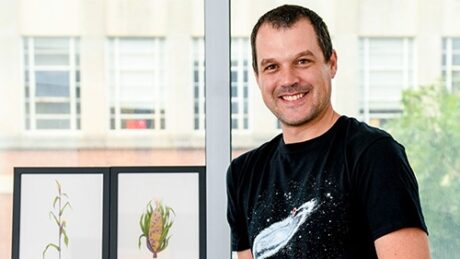
Dr. Rellán-Álvarez, an assistant professor in the Department of Molecular and Structural Biochemistry, earned his Ph.D. in plant biology from the Autonomous University of Madrid. He received the Department of Energy Early Career Research Award, which will support a project to develop approaches integrating gene-phenotype associations resulting from targeted metabolic profiling Genome Wide Associations Studies (GWAS), environmental GWA, population genetics indexes of selection to environmental stresses, and experimental selection that will enable ranking of candidate genes involved in adaptation to environmental stresses. His research focuses on plant nutrition, plant metabolomics, and maize and sorghum genetics and local adaptation. Rellán-Álvarez is a recipient of the Marschner Young Scientist Award.
Fulbright Future Scholarship
Iqbal Husain
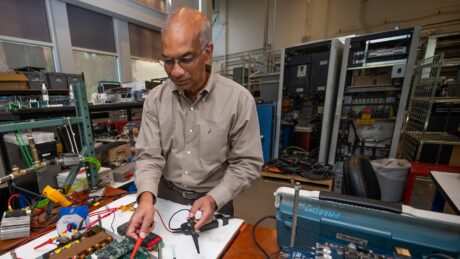
Dr. Husain, the ABB Distinguished Professor of Electrical and Computer Engineering, earned his Ph.D. in electrical engineering from Texas A&M University. He received a Fulbright Future Scholarship, which he will use to advance renewable energy and electric transportation technologies through revolutionary power electronics and intelligent systems controls. The ultimate objective for enhanced electrification is to have a strong impact on the livelihood of local indigenous communities which have much less access to electricity. Husain’s expertise is in the areas of power electronics, electric machines, motor drives and system controls. His research is focused on power electronics integration into power systems with renewable energy resources and electrified transportation. Husain received the 2006 SAE Vincent Bendix Automotive Electronics Engineering Award, the 2004 College of Engineering Outstanding Researcher Award, the 2000 Institute of Electrical and Electronics Engineers (IEEE) Third Millennium Medal and the 1998 IEEE-IAS Outstanding Young Member award. He became an IEEE Fellow in 2009. This year, Husain received the NC State College of Engineering’s Alcoa Foundation Distinguished Engineering Research Award. He was the Distinguished Lecturer of the IEEE Industry Applications Society for 2012-13. He is the past editor-in-chief of the IEEE Electrification Magazine.
Guggenheim Fellowship
Julia Rudolph (2021)
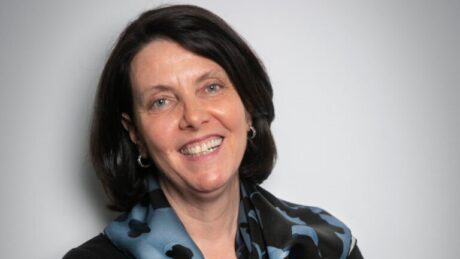
Dr. Rudolph, a professor in the Department of History, earned her Ph.D. in history from Columbia University. She was named a 2021 Guggenheim Fellow in the Law category, which supports her project examining a history of mortgage lending in the British Empire, which investigates Britain’s economic growth and examines major controversies about mortgage in order to explain the evolution of modern mortgage doctrine across the common law world — a set of legal principles and problems still at the heart of mortgage today. Her research interests include history, law, economics, gender studies, colonial studies, bibliography and media studies. Rudolph has received fellowships from the Andrew W. Mellon Foundation and the National Endowment for the Humanities, the Golieb Fellowship at New York University Law School, the Walkowitz Article Prize and a Love Article Prize from the North American Conference on British Studies.
Eduardo Corral (2022)
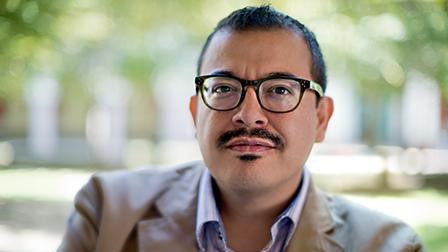
Dr. Corral, associate professor in the Department of English and faculty member in the creative writing Master of Fine Arts program, earned his Master of Fine Arts from the University of Iowa. He received a 2022 Guggenheim Fellowship in Poetry and a Lannan Literary Fellowship for Poetry, reflective of his research focus on creative writing and poetry. Corral is the author of Guillotine, published by Graywolf Press, which was longlisted for a National Book Award, and Slow Lightning, which won the 2011 Yale Series of Younger Poets Competition. He is the recipient of a Whiting Writers’ Award, a National Endowment for the Arts Fellowship and a Hodder Fellowship from Princeton University.
Humboldt Research Fellowship
Fanxing Li
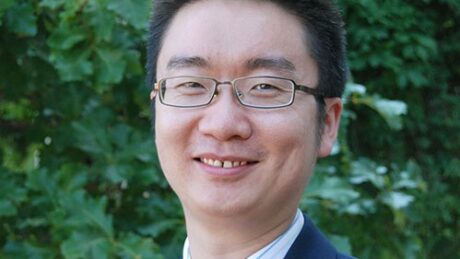
Dr. Li, Alcoa Professor in Chemical and Biomolecular Engineering, received his Ph.D. in chemical engineering from The Ohio State University. Li was awarded a Humboldt Research Fellowship, which will support collaborative research focusing on selective activation of light alkanes at Technische Universität Berlin. Li’s research focuses on catalysis, energy conversion, chemical process intensification, CO2 utilization and particle technology. Li has published over 100 journal articles and book chapters. He is also an inventor/co-inventor of 11 issued patents. He has won numerous awards including the “20 under 40” by the American Society for Engineering Education, the National Science Foundation Early Career Development (CAREER) Award, the Saudi Basic Industries Corporation Young Professional Award, the NC State Sigma Xi Faculty Research Award, and was named an NC State University Faculty Scholar and a Chancellor’s Innovation Fund awardee.
National Academy of Inventors Fellow
Fred Kish

Dr. Kish, M.C. Dean, Inc. Distinguished Professor in the Department of Electrical and Computer Engineering, earned his Ph.D. in electrical and computer engineering from the University of Illinois at Urbana-Champaign. He was named a National Academy of Inventors Fellow for the demonstration of a highly prolific spirit of innovation in creating outstanding inventions that have made a tangible impact on the quality of life, economic development and the welfare of society in the area of semiconductor optoelectronics. Kish has performed groundbreaking work in semiconductors and optoelectronics. He has been a co-inventor and leader of teams that developed three different multi-billion-dollar product platforms: high-brightness red-orange-yellow LEDs, vertical cavity surface-emitting lasers, and photonic ICs. Kish is a member of the National Academy of Engineering and a Fellow of the Institute of Electrical and Electronics Engineers (IEEE) as well as the Optical Society of America (OSA). He has received the IEEE David Sarnoff Award, the IEEE Lasers and Electro-optics Society Engineering Achievement Award, the OSA Adolph Lomp Award and the Technology Review 100 Award. He was also named the NC State Entrepreneur of the Year in 2020.
National Humanities Center Fellow
Tim Stinson (2021)
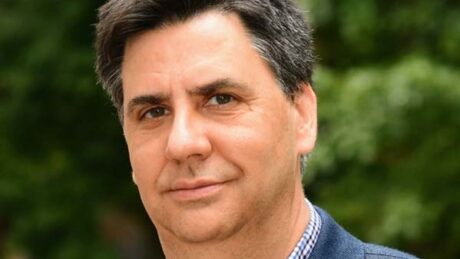
Dr. Stinson, a professor in the Department of English, earned his Ph.D. in English language and literature from the University of Virginia. He received a National Humanities Center Fellowship, which supports his development of “Avenging Christ,” a monograph that traces the evolution of narratives that relate the Roman destruction of Jerusalem in 70 A.D. The study articulates the cultural and religious uses of these stories in medieval England, where the fall of Jerusalem was reimagined as retribution for the crucifixion of Christ. His research primarily focuses on medieval studies, Jewish studies and medieval English literature. Stinson is a recipient of a National Endowment for the Humanities (NEH) Digital Humanities Fellowship, an NEH Summer Stipend and two Andrew W. Mellon Foundation grants. He is an NC State University Faculty Scholar; has twice received NC State Research and Innovation Seed Funding; won NC State’s Non-Laboratory Scholarship/Research Program Award, College of Humanities and Social Sciences Scholarship and Research Award and Outstanding Teacher Award. Stinson is director of the Society for Early English and Norse Electronic Texts, co-director of the Piers Plowman Electronic Archive, editor of the Siege of Jerusalem Electronic Archive, associate director of the Advanced Research Consortium, and co-founder and co-director of the Medieval Electronic Scholarly Alliance.
Blair Kelley (2022)
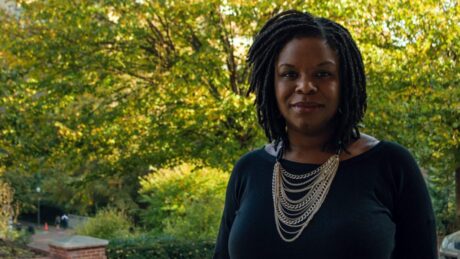
Dr. Kelley, assistant dean for Interdisciplinary Studies and International Programs in the College of Humanities and Social Sciences and an associate professor in the Department of History, earned her Ph.D. in history from Duke University. She was recently named a National Humanities Center Fellow. Kelley is currently at work on a new book, Black Folk: The Promise of the Black Working Class, for Liveright–W.W. Norton and Company, which was awarded a 2020 Creative Nonfiction Grant by the Whiting Foundation. Her first book, Right to Ride: Streetcar Boycotts and African American Citizenship, won the Letitia Woods Brown Best Book Award from the Association of Black Women Historians. Active inside the academy and out, Kelley has produced and hosted her own podcast and has been a guest on CNN Tonight with Don Lemon, MSNBC’s All In and Melissa Harris Perry Show, NPR’s Here and Now, and WUNC’s The State of Things. She has written for the New York Times, the Washington Post, The Root, The Grio, Ebony, Salon, and Jet magazine. Highlighted as one of the top-tweeting historians by History News Network, Kelley was among the first generation of historians active on Twitter. She has been tweeting as @profblmkelley for more than twelve years and she has over 43,000 followers.
Jason Miller (2022)

Dr. Miller, a professor in the Department of English, earned his Ph.D. from Washington State University. He was named a National Humanities Center Fellow for his work, “Backlash Blues: Nina Simone and Langston Hughes,” which will help him further chronicle new and unexplored connections between the world-famous poet and legendary North Carolina jazz singer. Miller’s research into poet Langston Hughes explores the music of North Carolina’s own Nina Simone, documents Martin Luther King, Jr.’s first-ever “I Have a Dream” speech delivered in Rocky Mount, North Carolina (nine months before the March on Washington), and chronicles King’s forgotten visit to Reynolds Coliseum in 1966. Miller is a member of the Academy of Outstanding Faculty in Engagement and Extension, the Academy of Outstanding Teachers and the Research Leadership Academy. He has received funding from the National Endowment for the Humanities and the Teagle Foundation, has been named an Honorary Citizen of Rocky Mount and served as Scholar-in-Residence at the African American Cultural Center.
National Science Foundation Faculty Early Career Development Award
K.C. Busch (2021)
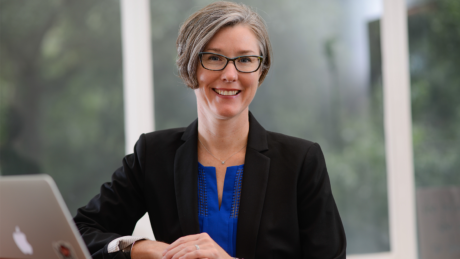
Dr. Busch, an assistant professor in the Department of STEM Education, earned her Ph.D. in science education from Stanford University. She received a 2021 National Science Foundation Faculty Early Career Development (CAREER) Award that will help her re-conceptualize and measure science literacy at the community level, working with North Carolina coastal communities affected by climate change. Busch’s research has focused on how people make sense of climate change and the complex factors that influence whether or not they will take action. She has received the NC State Alumni Association Outstanding Teaching Award (2019–20) and the NC State Outstanding Teaching Award (2019–20), and has been nominated for the Goodnight Early Career Innovators Award (2021-22) and the NC State Outstanding Global Engagement Award (2017–18, 2018–19).
Alexandros Kapravelos (2021)
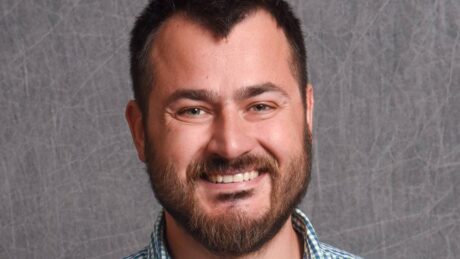
Dr. Kapravelos, an assistant professor in the Department of Computer Science, earned his Ph.D. in computer science from the University of California, Santa Barbara. He received a 2021 National Science Foundation Early Career Development (CAREER) Award. His research interests span the areas of systems and software security. Currently, he studies how the web changes on the client side via browser extensions and how we can protect the browser from malicious client-side attacks. He is also interested in internet privacy and browser fingerprinting specifically, where he is working on making Internet users less distinctive while they browse the web. Kapravelos is the lead developer of Wepawet, a publicly available system that detects drive-by downloads with the use of an emulated browser, Revolver, a system that detects evasive drive-by download attempts, and Hulk, a browser extension analysis system.
Natalie Nelson (2021)
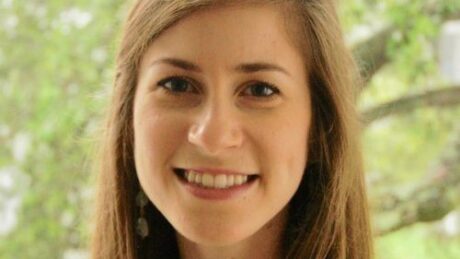
Dr. Nelson, an assistant professor in the Department of Biological and Agricultural Engineering, earned her Ph.D. in agricultural and biological engineering from the University of Florida. She received a 2021 National Science Foundation Early Career Development (CAREER) Award, which will help her investigate water quality impacts associated with sunny-day flooding in coastal towns, as well as educate science teachers and secondary school students about the impacts of sea level rise. Her research focuses primarily on water quality modeling. She is also a National Academies’ Gulf Research Program Early Career Research Fellow, a Goodnight Early Career Innovator and an NC State University Faculty Scholar.
Caroline Proulx (2021)
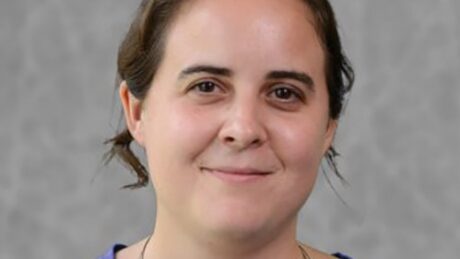
Dr. Proulx, an assistant professor in the Department of Chemistry, earned her Ph.D. in chemistry from the University of Montreal. She received a 2021 National Science Foundation Early Career Development (CAREER) Award, which will support her research project “Synthesis of Functional Biomolecules From Tunable N-Aryl Peptide Precursors.” Her research interests include organic chemistry; and peptides/peptidomimetics synthesis, folding and function. Proulx has been honored with the American Peptide Society Early Career Lectureship (2021) and the LeRoy and Elva Martin Award for Teaching Excellence (2020).
Ruozhou Yu (2021)
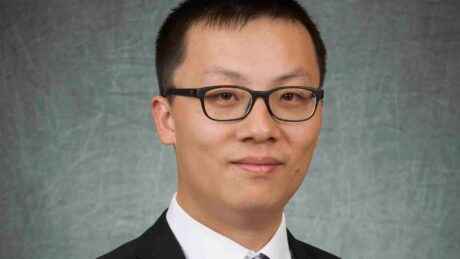
Dr. Yu, an assistant professor in the Department of Computer Science, earned his Ph.D. in computer science from Arizona State University. He received a 2021 National Science Foundation (NSF) Early Career Development (CAREER) Award, which will support his research on developing a uniform theoretical and system design framework for edge computing performance optimization, with application to autonomous driving, machine learning and other real-world scenarios. His research focuses on computer networking, cybersecurity and artificial intelligence. Yu received the Institute of Electrical and Electronics Engineers (IEEE) EDGE Best Student Paper award (2017) and was a finalist for the Best Paper award of IEEE INFOCOM (2018). He was an exemplary reviewer for IEEE Transactions on Wireless Communications (2018) and a distinguished Technical Program Committee (TPC) member for IEEE INFOCOM (2020 and 2022). He has served as the general vice co-chair for IEEE International Performance Computing and Communications Conference (IPCCC) 2022, as a workshop co-chair for IEEE IPCCC (2020-2021), as the web co-chair for IEEE INFOCOM 2022, and on the TPC of IEEE INFOCOM 2020-2022 and IEEE Conference on Communications and Network Security 2022. He is a senior member of IEEE.
Ashly Cabas (2022)
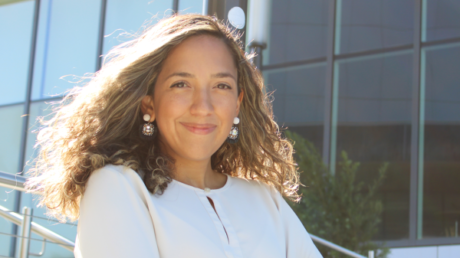
Dr. Cabas, an assistant professor in the Department of Civil, Construction and Environmental Engineering, earned her Ph.D. in civil engineering from Virginia Tech. Cabas won a 2022 National Science FoundationEarly Career Development (CAREER) Award, which will advance scientific knowledge on the response of soils to earthquake ground shaking at multiple scales and enable its incorporation into system-level probabilistic seismic hazard assessments for water distribution systems. Educational impacts include the launch of the first Earthquake Engineering and Seismology Community Alliance in Latin America. Her team investigates earthquake-induced geohazards and the response of soils, rocks and foundation systems to seismic loading. Cabas’ work also focuses on the characterization of earthquake ground motions and their effects on the performance of critical civil infrastructure. Cabas was awarded the 2021 Earthquake Engineering Research Institute (EERI) Shah Family Innovation Prize, which honors individuals for creativity and innovation in earthquake risk mitigation. Her group’s work has also been recognized with the EERI best paper awards in 2014 and 2018. Cabas was recently elected as a member of the Board of Directors of the Seismological Society of America, and selected as a 2021 NC State Impact Scholar, 2021 New Faces in the ASCE Geo-Institute and Fellow for the NSF Enabling the Next Generation of Hazards and Disasters Researchers Fellowship Program.
Albert Keung (2022)
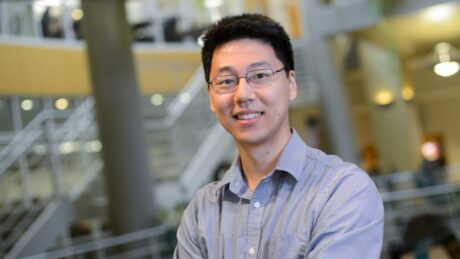
Dr. Keung, an assistant professor in the Department of Chemical and Biomolecular Engineering, earned his Ph.D. in chemical engineering from the University of California, Berkeley. He was honored with a 2022 National Science Foundation Faculty Early Career Development (CAREER) Award, which will help develop new technological platforms and educational innovations that will unlock understanding of and ability to control the expression of genes in higher-order organisms from yeast and plants to humans, with broad applications in biotechnology. His research focuses on bioengineering, synthetic biology and epigenetics. Keung has also received the ACS Synthetic Biology Young Investigator Award, the National Institutes of Health Avenir Award and the Cure Angelman Syndrome Innovation Award.
Sebastian Koenig (2022)
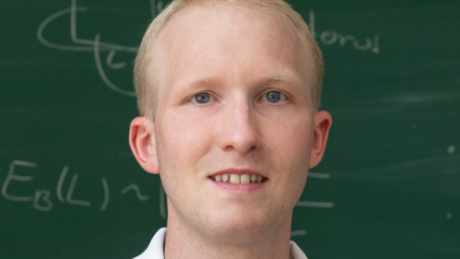
Dr. Koenig, an assistant professor in the Department of Physics, received his Ph.D. in physics from the University of Bonn in Germany. He was awarded a 2022 National Science Foundation Early Career Development (CAREER) Award for the project “Few-Body Physics in Finite Volume,” which aims to develop theoretical techniques and numerical simulations of quantum systems that will help understand how these systems are governed by the underlying fundamental forces. His research focuses on theoretical nuclear physics and few-body systems. Koenig was awarded the Few-Body Systems Award for Young Researchers (2019), the Dissertation Prize of the German Physical Society (2015) and the Dr. Klaus Erkelenz Prize (2013).
Spyros Pavlidis (2022)
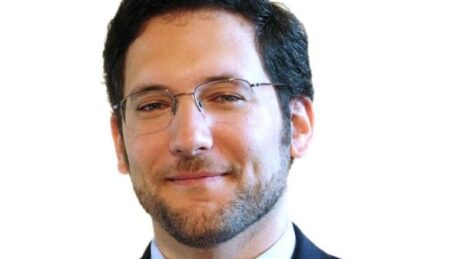
Dr. Pavlidis, an assistant professor in the Department of Electrical and Computer Engineering, received his Ph.D. in electrical and computer engineering from Georgia Tech. He received a 2022 National Science Foundation (NSF) Early Career Development (CAREER) Award for his research on “Engineering Ultra-Wide Bandgap III-Nitride Devices for Highly Efficient and Robust Electronics.” The research will develop high-performance devices based on aluminum gallium nitride (AlGaN), a next-generation semiconductor. Education and outreach efforts will equip undergraduates with marketable skills for STEM careers, and increase the public’s literacy surrounding semiconductors. Pavlidis’ research interests lie at the intersection of electronic materials, devices and circuits. This translates to meeting the needs of next-generation power, communications or sensing systems via the development of high-performance devices based on wide bandgap semiconductors and nanomaterials. Since joining NC State, he has been awarded over $2 million in research grants from federal agencies such as the Defense Advanced Research Projects Agency, the U.S. Air Force and the NSF. He is a past recipient of the European Microwave Conference Young Engineer Prize, the NSF East-Asia Pacific Summer Institutes Fellowship and an Oak Ridge Institute for Science and Education Air Force Research Laboratory Fellowship.
Bradley Reaves (2022)

Dr. Reaves, an assistant professor in the Department of Computer Science, earned his Ph.D. in computer engineering from the University of Florida. He received a 2022 National Science Foundation Early Career Development (CAREER) Award, which will fund “Increasing Trust and Reducing Abuse in Telephone Networks,” a project that will end the present plague of robocalls by developing technologies to empower providers to quickly identify and takedown robocall operators before they can become profitable. These technologies will ultimately improve the trustworthiness of the telephone network and make it safe to answer the phone again. Reaves is a computer scientist working to characterize and improve computer security, with special emphasis on telephone networks, enterprise networks and the software supply chain. He has previously received four distinguished paper awards as well as the 2020 Internet Defense Prize for his research on robocalls.
Dali Sun (2022)
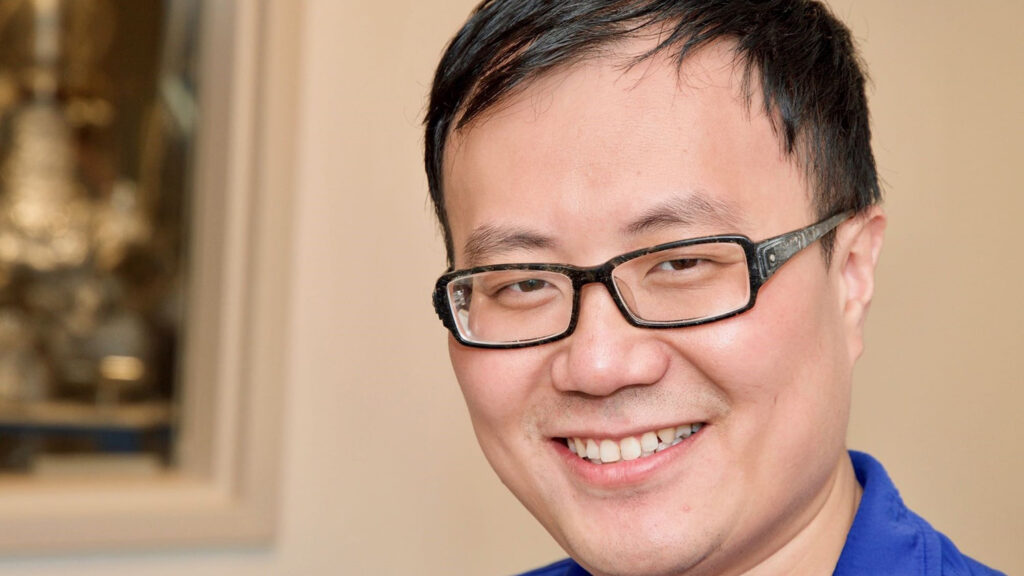
Dr. Sun, an assistant professor in the Department of Physics, received his Ph.D. in condensed matter physics from the Institute of Physics at Chinese Academy of Sciences. He received the 2022 National Science Foundation (NSF) Early Career Development (CAREER) Award, which will support research to study spin behavior in a new class of hybrid magnetic materials, which consist of alternating magnetic and nonmagnetic atomic layers. These materials can facilitate the study of spin states at the atomic level to make the next generation of high-performance microprocessors possible. Sun’s research interests are in spintronics and optoelectronics of organic semiconductors, magnetic thin films and organic-inorganic hybrid perovskites. He is a member of the NSF Division of Materials Research Electronic/Photonic Materials program. Sun is also the recipient of the Department of Energy Early Career (2020).
Wenyuan Tang (2022)
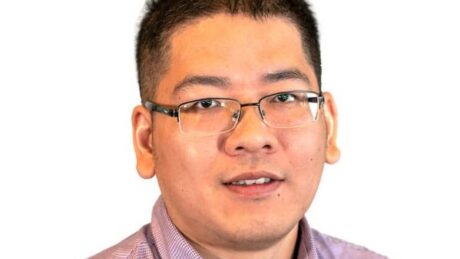
Dr. Tang, an assistant professor in the Department of Electrical and Computer Engineering, earned his Ph.D. in electrical engineering from the University of Southern California. He received the 2022 National Science Foundation (NSF) Early Career Development (CAREER) Award, which will fund his project to build analytical frameworks to understand, evaluate and adapt the evolving electricity market mechanisms, toward the long-term goal of creating market mechanisms and providing policy recommendations that enhance the transparency, reduce the manipulation and ultimately improve efficiency of electricity markets. His research interests include electricity markets, data analytics and machine learning, and optimization for power systems. He is a recipient of the R. Ray Bennett Faculty Fellow Award (2021).
Robert Foster Cherry Award for Great Teaching
Hollylynne Lee
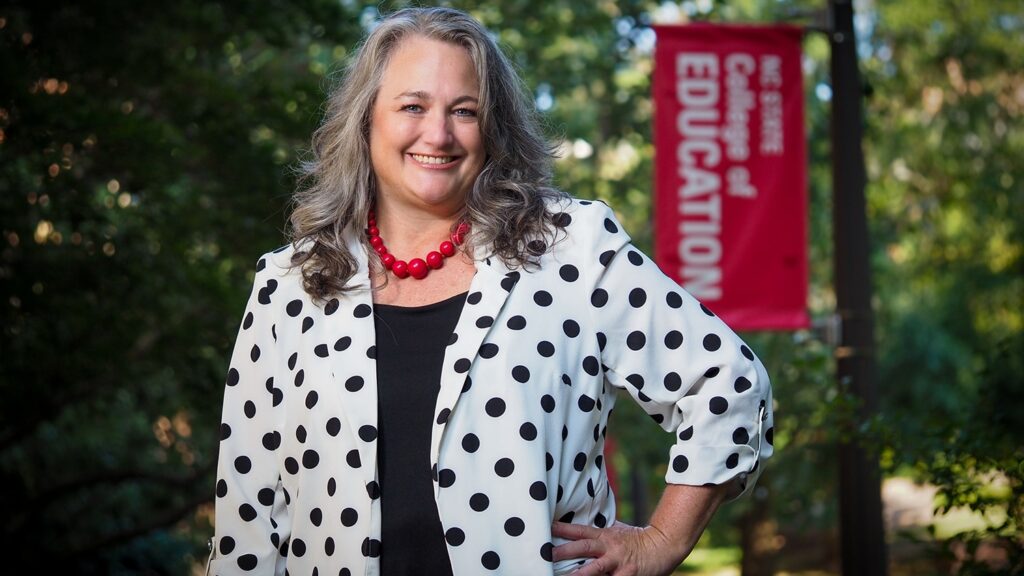
Dr. Lee, a distinguished professor in the Department of STEM Education, earned her Ph.D. in mathematics education from the University of Virginia. She received the Robert Foster Cherry Award for Great Teaching, which is designed to honor great teachers, to stimulate discussion in the academy about the value of teaching and to encourage institutions to value their own great teachers. Lee will teach in residence at Baylor University in spring 2023 and receive a $250,000 prize. Her research focuses on teaching and learning probability, statistics and data science in grades 4-14. She is an expert on the design and use of technology tools to facilitate students’ learning of mathematics and statistics, as well as preparing teachers to use technology tools. Lee has been named a Fellow of the American Statistical Association (2020), won the UNC Board of Governor’s Award for Excellence in Teaching (2020), was named a Fellow of the International Society for Design and Development in Education (2019) and was named a University Faculty Scholar for RTI International (2018-19).